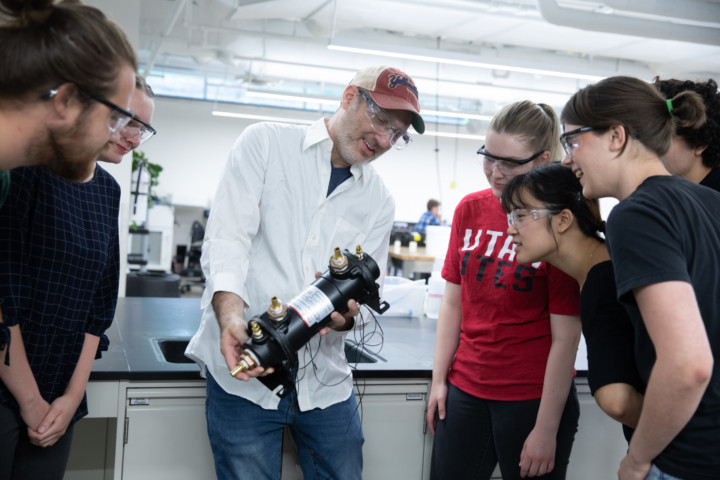Four University of Utah biomedical engineering graduate students were offered awards in the National Science Foundation’s Graduate Research Fellowship Program (NSF GRFP) for 2022. They are among eight College of Engineering students and 20 overall from the U to receive the fellowship this year, the largest U cohort to date.
The prestigious fellowship supports outstanding doctoral and research-based master’s students doing research in science, technology, engineering and mathematics, or STEM, disciplines. A total of 17 fellowship winners received their baccalaureate degrees here at the U, the largest group of winners ever who trained at the U as undergraduates.
“We had really moved the mark over the past few years, but this year we hit it out of the park,” said David Kieda, dean of the U’s Graduate School.
This year’s engineering recipients come from the biomedical, chemical and mechanical engineering departments. The College of Engineering’s great success with the program in recent years is in large part due to faculty and student led mentoring workshops. Chemical engineering associate professor (lecturer) Tony Butterfield has been working with students all over the U campus in honing their applications. He starts off with an info session for fellowship applicants in September and then conducts writing workshops where students analyze their personal and research statements. In the biomedical engineering department, past recipients of the NSF GRFP award have also conducted workshops to help their students. Established by GRFP fellows Jake George and Marta Iversen in 2017, the workshop provides application advice and pairs fellowship applicants to current fellows for one-on-one feedback and mock reviews. This past year, seven GRFP fellows, including the student leaders of this initiative for 2021, Brian Cottle and Julia Dunn, volunteered to mentor applicants and guided them throughout the application process.
Established in 1952, the NSF GRFP is the oldest fellowship program of its kind. The 2022 fellows receive a three-year annual stipend of $34,000, a $12,000 cost of allowance for tuition and fees, and numerous research and professional development opportunities.
“The University of Utah has a remarkable student population — the top in the nation,” Butterfield said. “By giving them early opportunities to shine in our research labs and student communities, they can adeptly master the skills needed to become amazing graduate students.”
If you are interested in receiving information about Butterfield’s workshops — which is open to all U students — for next year’s NSF GRFP, click here to sign up for an email list.
Congratulations to the eight engineering students who received the fellowship:
Devaki Abhyankar, biomedical engineering
Hannah Duffy, biomedical engineering
Robert Falconer, biomedical engineering
Cleo Hancock, chemical engineering
Shaylee Larsen, chemical engineering
Nathan Ortiz, mechanical engineering
Andrew Simonson, chemical engineering
Caleb Thomson, biomedical engineering
The following engineering students received honorable mentions:
Donovan Birky, mechanical engineering
Rachel Klink, biomedical engineering
Tre Presley, mechanical engineering
